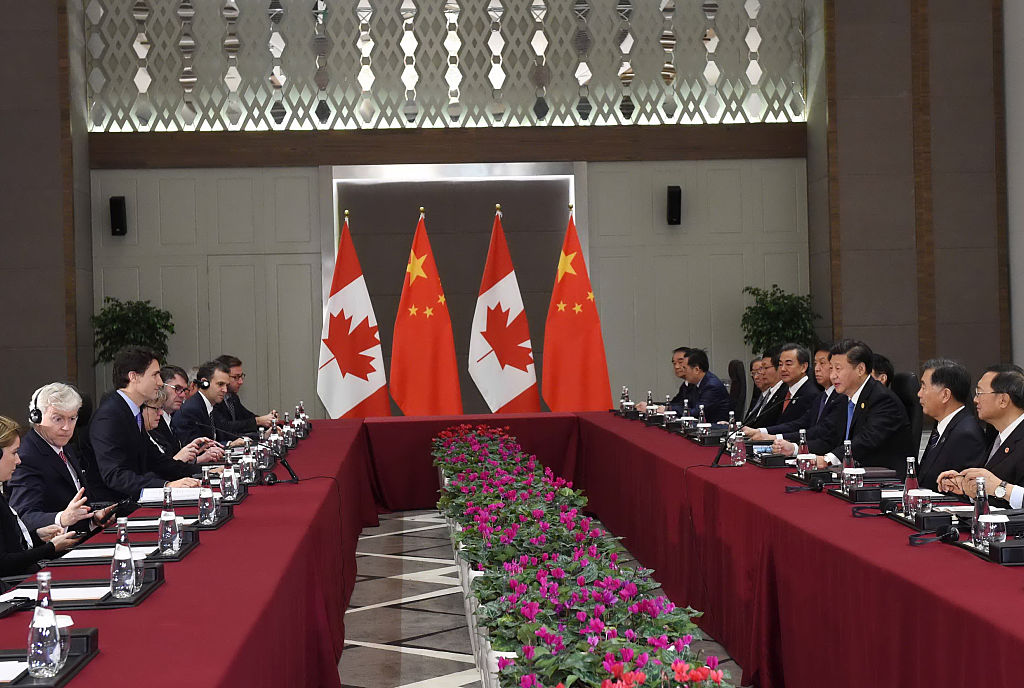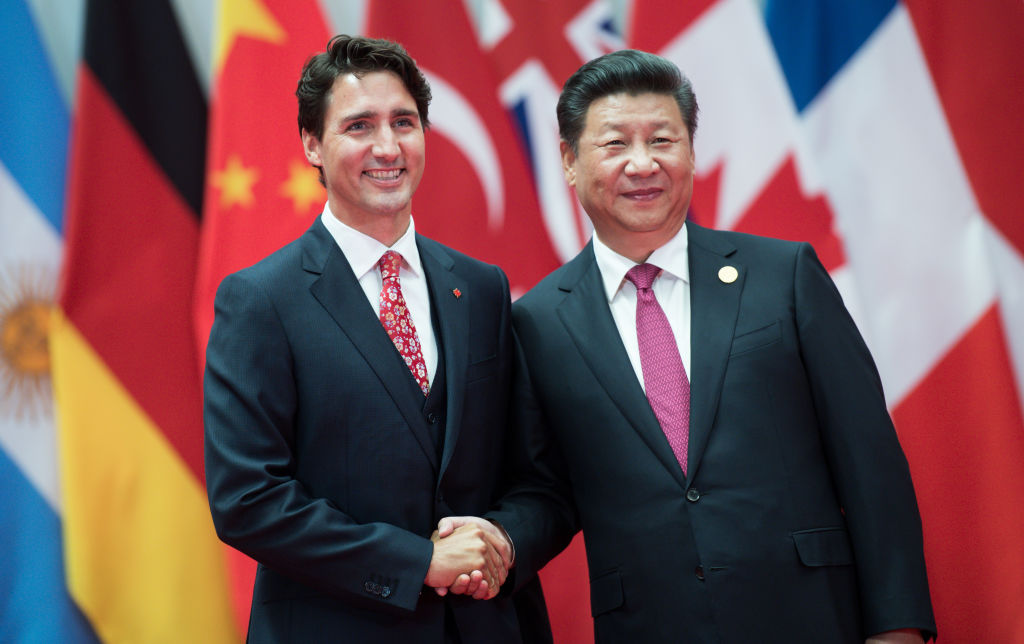If Canada and China were lovebugs, their Facebook relationship status would be “complicated.” For years, they have endured a love-hate relationship. One moment, Prime Minister Justin Trudeau declared his affinity for Beijing, telling voters in 2013 that he admired its “basic dictatorship” because it allows them to “turn their economy around on a dime.” A few years later, the Chinese Communist Party slapped tariffs on Ottawa. President Xi Jinping and his henchmen interfered in Canada’s recent election, but then the Canadian government was found to have assisted Chinese law enforcement in pursuit of fugitive nationals living abroad.
China, Canada, and the Law
Government-owned media outlet and its investigative series, The Fifth Estate, reported that Ottawa engaged in quid pro quo deals that “turned a blind eye to the lack of rule of law in China.” Calvin Chrustie, a former Royal Canadian Mounted Police operations officer, told the news outlet that he was given direction from high-level individuals and agencies in the Canadian government to “assist and collaborate with” Chinese authorities to locate a high-profile individual in Vancouver.
This was not an isolated incident. According to the report, the Canadian government has been a willful participant in this relationship for years. It also is not a surprising development, either, as Chinese police operations were discovered earlier this year in Vancouver, Toronto, and Montreal (reports from May 2023 suggest that two were still open in Montreal, despite the government claiming all were closed).

(Xinhua/Rao Aimin via Getty Images)
The purpose? Beijing worked hard to keep the arrangement intact by acquiescing to specific trade demands, releasing Canadians arbitrarily detained in China, and providing assistance in the nation’s fight against illegal drugs.
“Our economic interests sort of drove this,” Lorne Waldman, a Toronto immigration attorney, said in an interview with CBC. “We turned a blind eye to the lack of rule of law in China and turned a blind eye to the fact that we should be way more skeptical about the evidence coming from China. And as time went on, we turned a blind eye to the fact that Chinese agents were acting in Canada.” The Ministry of Public Safety and Canadian Security Intelligence Service did not comment on the story.
‘Spamouflage’
Global Affairs Canada, a department that manages the country’s diplomatic relations, published an Oct. 24 report that showed the Chinese government was behind a “spamouflage” (a combination of spam and camouflage) disinformation campaign targeting Trudeau, Conservative Leader Pierre Poilievre, and dozens of Members of Parliament. The August-September campaign utilized a network of new and hijacked social media accounts, from Facebook to X to Reddit, to publish propaganda. The army of bots posted digitally modified videos, also known as deepfakes, and messages that claimed a CCP critic accused Canadian officials of criminal and unethical behaviors.
Officials say the objective was twofold: discredit the Canadian government and silence criticism of China’s communist regime.
“Foreign information manipulation and interference undermines Canada’s democracy and the ability of Canadians to exercise their rights and freedoms free from intimidation,” Global Affairs Canada said in a statement. “This campaign could discourage and make it difficult for MPs to carry out their duties and may dissuade MPs and diaspora communities in Canada from speaking out on issues which concern them.”

(Photo by Bernd von Jutrczenka/picture alliance via Getty Images)
This past summer, Facebook owner Meta announced that it uncovered a vast “covert influence operation” on more than 50 platforms and forums. The social network shut down more than 7,700 accounts, 954 pages, 15 groups, and 15 Instagram accounts. “This network originated in China and targeted many regions around the world, including Taiwan, the United States, Australia, the United Kingdom, Japan and global Chinese-speaking audiences,” Meta stated.
Canada’s Foreign Policy Challenges
The Trudeau government has had its share of foreign policy challenges in 2023, from beef with India to China consistently inserting itself in Canada’s politics. But Ottawa is slow to react to these developments. It took the prime minister a year to finally have a public inquiry into China’s intervention in the 2019 and 2021 elections, although the government had rejected calls for a full investigation. Evidently, Beijing is involved in many aspects of Canada’s society, and the scarcity of solid leadership in Ottawa proves why China can achieve these efforts without penalty or retaliation.



